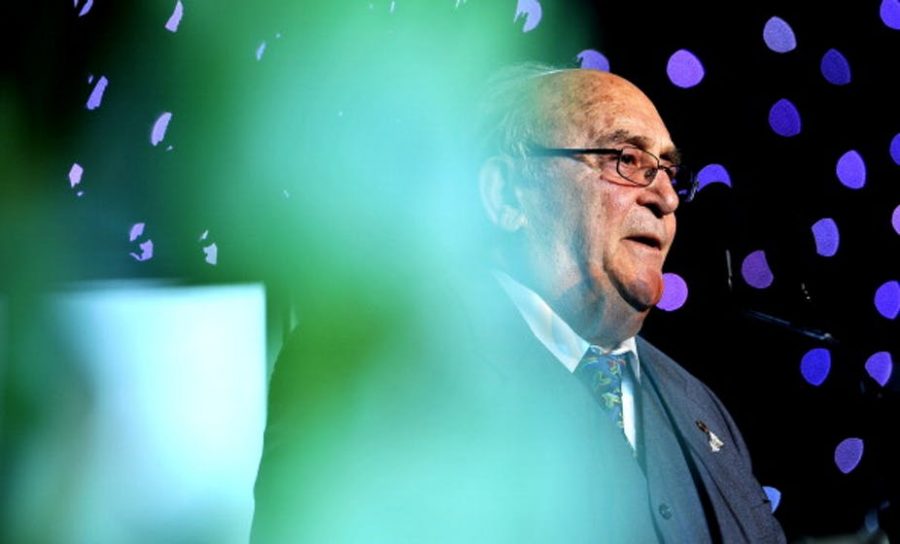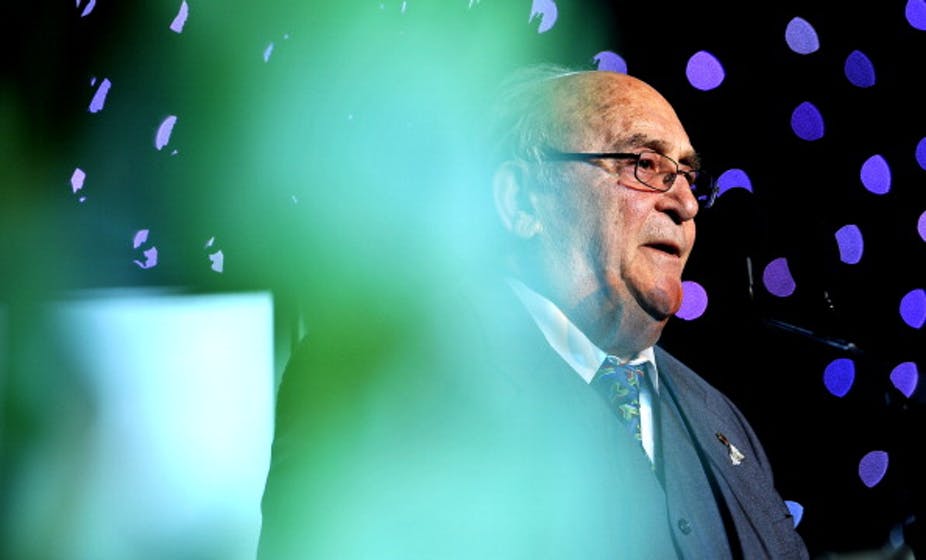
Denis Goldberg: Rivonia Triallist, Liberation Struggle Stalwart, Outspoken Critic
Denis Theodore Goldberg, one of the stalwarts in the fight against apartheid in South Africa, has passed on at the age of 87. He was one of the two last remaining activists who were tried for sabotage in 1963-1964 along with Nelson Mandela, Walter Sisulu and Ahmed Kathrada. Goldberg was born into a family of […]

Denis Theodore Goldberg, one of the stalwarts in the fight against apartheid in South Africa, has passed on at the age of 87. He was one of the two last remaining activists who were tried for sabotage in 1963-1964 along with Nelson Mandela, Walter Sisulu and Ahmed Kathrada.

Goldberg was born into a family of communists in Woodstock, Cape Town, in 1933. His London-born parents were descended from Lithuanian Jews. His childhood home was one where people of all colours were welcome and were among his friends, very unusual in white South African homes of that generation.
He spent more than two decades of his life behind bars at Pretoria Central Prison at the end of the Rivonia trial. Because of apartheid laws he, as a white person, could not be sent to Robben Island, where all black political prisoners and his fellow triallists were sent.
The revolutionary road
Goldberg enrolled for a civil engineering degree at the University of Cape Town in 1950, the year the Communist Party of South Africa was banned. He participated in the Modern Youth Society along with other leftists, and joined the underground South African Communist Party in 1953 when it re-formed.
In 1953 Goldberg was organising meetings at Loyolo settlement in Simonstown, to encourage support for the planned Congress of the People in 1955. The meeting brought together the Congress Alliance, comprising the African National Congress (ANC), the South African Indian Congress, the Coloured People’s Congress, the South African Congress of Trade Unions, and the Congress of Democrats, on 25-26 June 1955.
The Special Branch, the political wing of the apartheid police, reported this, and the state-owned railways fired Goldberg from his job.
The meeting culminated in the adoption of the Freedom Charter, which became the congress movement’s blueprint for a free, non-racial South Africa.
Goldberg was also active in this decade in the Congress of Democrats, a leftist organisation affiliated with the ANC, whose membership was in those years restricted to Africans.
In 1960 he participated in the anti-pass protests. Then, all black people were required to carry identity documents that controlled their movements. The document was derisively known as the dompas (dumb pass).
He was detained without trial for four months under the state of emergency, as was his mother. This resulted in his being fired from his job working on constructing the Athlone power station.
When the apartheid regime banned the ANC and the rival Pan-Africanist Congress (PAC) in 1960, Goldberg was one of the founders of uMkhonto we Sizwe (MK), the armed wing of the ANC, planning an armed rebellion. Goldberg helped organise the first MK training camp inside South Africa, and was MK’s technical officer.
On 11 July 1963 the Special Branch raided Liliesleaf farm outside Johannesburg and detained him, along with Walter Sisulu and other top ANC leaders. After months of detention, the state charged him and others with sabotage. Mandela, already serving a jail sentence for leaving the country without a passport, was added to the accused. This started the famous Rivonia trial.
It remains a matter of speculation why the accused were charged with sabotage and not high treason. The probable reason is that under the then new Sabotage Act, steered through parliament by Balthazar Johannes Vorster, minister of police, any accused were guilty until proven innocent. This made it easier for prosecutors to jail those who came before the courts.
Eight accused were sentenced to life imprisonment in 1964. At 31 years of age Goldberg was the youngest. Apartheid segregated prisoners. Goldberg was sent to jail in Pretoria, while his fellow accused were all flown to Cape Town for transport to Robben Island prison.
Prison, and after
Political prisoners were treated vindictively. Goldberg was denied any visitors for four years. He was allowed to send and receive only one letter, not exceeding 500 words, per six months. But many of the letters from his wife, Esme Bodenstein, were not handed to him.
It was only in 1980 that political prisoners were allowed to read newspapers.
In 1974 Goldberg took on the task of caring for Bram Fischer, the communist party leader and their former defence lawyer, when he was dying of cancer in the row of cells.
In 1985 Goldberg was released. He flew to visit his daughter in Israel; and then lived with his wife in London. After his wife passed away in 2000, he returned to South Africa in 2002 with his second wife, Edelgard. Ronnie Kasrils, then minister of water affairs and forestry, hired him as special advisor for two years.
Goldberg used his prestige to speak out against the corruption that peaked during Jacob Zuma’s decade as president. As one of the idealists who worked for the ANC before it came into office in 1994, corruption and state capture was repugnant to his generation.
In retirement, Goldberg launched fund-raising for the Denis Goldberg House of Hope in Hout Bay, a suburb of Cape Town. His House of Hope would offer opportunities in art and music to local disadvantaged children.
Retirement added to all the honours he received. In 2019 the ANC awarded him its highest decoration, the Isithwalandwe. He was awarded four honorary doctorates, from Medunsa (now Sefako Makgatho Health Sciences University), Heriot-Watt University (Scotland), the University of Cape Town, and Cape Peninsula University of Technology.
Andrew Mlangeni is now the sole survivor of the Rivonia trial. – Keith Gottschalk, University of the Western Cape![]()
Keith Gottschalk, Political Scientist, University of the Western Cape
This article is republished from The Conversation under licence Creative Commons. Read the original article.